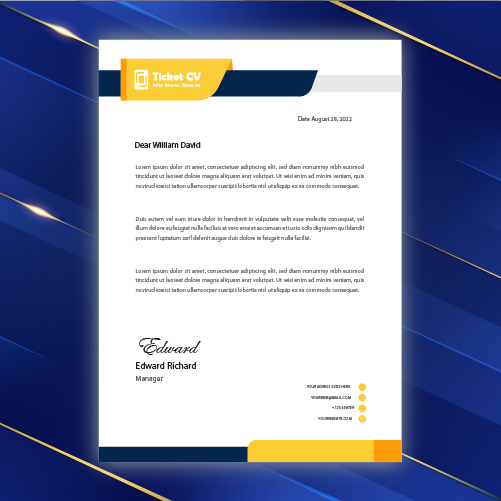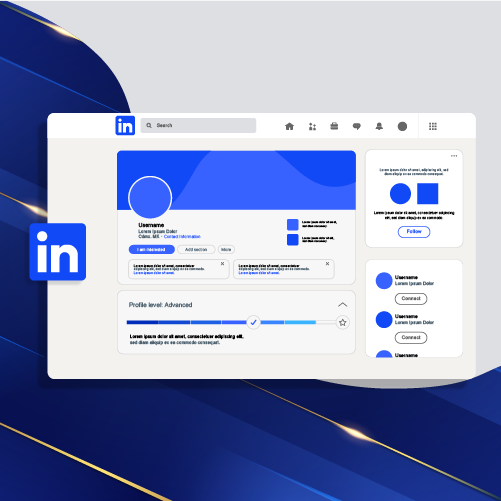The DISC personality test questionnaire offers valuable insights into understanding personality styles and effective communication strategies in the workplace. This assessment, rooted in behavioral research, provides a framework for comprehending human behavior and personal style through identifying dominant traits. Understanding the historical background, key principles, and personal style of the DISC model is essential to grasp its application in various contexts. Accessing personalized DISC tests through online platforms or professional services enables individuals to gain self-awareness and enhance their communication skills, ultimately leveraging their strengths.///
Contents
ToggleDISC Personality Types
Dominance
People with a dominant personality type are often assertive and decisive. They tend to take charge and make quick decisions. Their communication style is direct and focused on results, often prioritizing efficiency over building personal connections. /// In leadership roles, dominant individuals excel at providing clear direction and driving people towards work goals. However, their assertiveness can sometimes lead to challenges in collaborating with other people who have different communication styles.
Dominant people are adept at tackling challenges head-on, using their confidence and determination to navigate obstacles effectively. This approach often makes them valuable assets in high-pressure or fast-paced work environments where swift decision-making is crucial.
The impact of dominance on leadership styles can be seen in the authoritative approach taken by leaders with this personality type. They thrive in work positions that require making tough calls and taking control of situations.

Influence
Influential people within the DISC model are known for their sociable nature and ability to inspire others. They possess excellent interpersonal skills, allowing them to connect easily with people from diverse backgrounds. Their communication style is expressive and enthusiastic, making them great motivators within a team setting.
Individuals with an influential personality type leverage their natural charm to foster effective teamwork and collaboration among team members. Their optimistic outlook helps maintain morale during challenging times while also promoting creativity within the group dynamic.
Self-awareness through disc personality test questionnaire
Gaining self-awareness through the disc personality test questionnaire is crucial for personal growth. By understanding one’s strengths and areas for development, individuals can make positive changes in their lives. For example, someone with a dominant personality type might realize they need to work on being more empathetic towards others.
Applying these personal insights can also significantly improve relationships. For instance, an individual who discovers that they have a reserved communication style may learn to express themselves more openly in their personal relationships, leading to better understanding and connection with others.

Understanding one’s disc personality type provides valuable information about how individuals interact with the world around them. This knowledge empowers people to leverage their strengths effectively while working on areas that need improvement. For instance, someone with a conscientious personality type may use this insight to develop strategies for becoming more adaptable in various situations.
Communication Enhancement with DISC
Understanding your communication style through the DISC personality test questionnaire enables you to tailor your approach for more effective interactions. By being aware of different behavioral traits, you can adapt your communication to suit others’ preferences. For instance, if someone exhibits dominant characteristics, you may adjust your communication to be more direct and results-oriented.
Tailoring your communication based on others’ behavioral traits allows you to build rapport and understand diverse perspectives for productive engagements. This could involve adjusting your tone, level of detail, or pace of speech to better align with the preferences of those around you.
Recognizing and adapting to different personality styles in DISC can significantly enhance the quality of your interactions. For example, when communicating with individuals who have a strong influence trait, incorporating storytelling and focusing on shared experiences might help establish a stronger connection.
Team Dynamics and DISC Profiles
Collaboration within teams can be enhanced by understanding disc personality types and leveraging the diverse strengths they bring. By recognizing and valuing contributions from all behavioral traits, teams can foster an inclusive environment that maximizes the potential of each member. For example, individuals with dominant (D) personalities may excel in decision-making roles, while those with influential (I) traits could thrive in creative or client-facing positions.
Maximizing team synergy through effective collaboration strategies involves creating a balanced team composition that leverages various strengths identified by the DISC model. This means ensuring that there is representation from each personality type to promote a well-rounded approach to problem-solving and decision-making. For instance, having a mix of analytical (C) personalities for attention to detail, along with supportive (S) individuals for relationship-building, can lead to comprehensive solutions and stronger team cohesion.
To achieve this level of collaboration effectively in practice requires leaders who understand how different personality types contribute to overall team dynamics. Leaders should implement coaching sessions focused on enhancing communication styles tailored to individual personality preferences. By doing so, they can promote cohesion and productivity through synergy among team members.
Leadership Development Using DISC
Leadership Styles
Understanding personality styles through the DISC model can provide valuable insights into different leadership approaches. For example, individuals with a dominant personality type might exhibit assertive and decisive leadership qualities, while those with an influential style may excel in motivating and inspiring their teams. By exploring these various leadership styles, organizations can better align roles and responsibilities with individuals’ behavioral preferences.
Developing adaptive leadership styles based on team members’ behavioral preferences is crucial for effective leadership development. For instance, a leader who recognizes that certain team members prefer detailed instructions may adjust their communication style accordingly to ensure clarity and understanding. Leveraging insights from the DISC assessment enables leaders to tailor their approach, ultimately enhancing their effectiveness in guiding diverse teams.
Training Applications
Integrating DISC principles into training programs for professional development offers numerous benefits. Customizing training modules to address specific behavioral traits identified through the assessment can significantly enhance learning outcomes by catering to individual personality styles. For example, incorporating interactive activities that resonate with each personality type ensures engagement and retention of essential skills.
Moreover, aligning training content with individual personalities empowers leaders to create a supportive environment where each team member feels understood and valued. This fosters open communication and collaboration within teams, contributing to improved overall performance.
Benefits of the DISC Assessment
Understanding your disc personality can significantly impact workplace culture. By acknowledging and respecting diverse behavioral preferences, a positive environment can be cultivated. This acknowledgment fosters inclusivity and values contributions from all personality styles.
The DISC model provides insights into individual differences, allowing organizations to cultivate a culture of understanding, appreciation, and collaboration. By recognizing the unique strengths and communication styles of each team member based on their behavioral assessment, an environment that encourages open dialogue and mutual respect is fostered.

Building a positive workplace culture using the results of the disc test creates an opportunity for better teamwork, improved conflict resolution, and enhanced productivity. For instance, if someone has a dominant personality type (D), they may prefer direct communication; understanding this preference can prevent misunderstandings in team interactions.
In addition to shaping a harmonious work setting by leveraging knowledge about different personality traits, organizations can also tailor coaching sessions to address specific communication challenges or conflicts arising from diverse behavioral styles within teams.
Relationship Building
Strengthening relationships both personally and professionally becomes more attainable when individuals have awareness of their own behavioral style as well as others’. The ability to nurture empathy, trust, and mutual understanding is heightened through insights gained from the DISC model.
Tailoring relationship-building strategies based on specific personality traits allows for more effective communication between partners or colleagues with differing preferences. For example, adapting one’s approach based on whether someone has an outgoing (I) or reserved (C) communication style can lead to smoother interactions in both personal and professional settings.
DISC in Customer Service
Sales Training
Tailoring sales approaches based on customers’ communication style can significantly impact the success of a sales team. By utilizing insights from the DISC personality test questionnaire, sales professionals can adapt their strategies to resonate with different behavioral preferences. For instance, individuals with a dominant (D) communication style may respond well to direct and results-oriented pitches, while those with an influential (I) style might appreciate personalized and relationship-focused interactions. This tailored approach enhances customer engagement and increases the likelihood of successful conversions.

DISC-personality-test-questionnaire-DISC-assessment
Leveraging knowledge gained from the DISC assessment allows organizations to refine their training programs for sales representatives. Understanding how each personality type prefers to receive information or make decisions enables businesses to customize training materials and methods accordingly. This not only improves learning outcomes but also empowers sales teams to effectively communicate with diverse clients, ultimately driving higher satisfaction levels and repeat business.
Service Excellence
Recognizing and responding to customers’ diverse behavioral styles is crucial for delivering exceptional service in today’s competitive market. The DISC model equips customer service professionals with valuable insights into individual preferences, enabling them to tailor interactions accordingly. For example, individuals exhibiting a conscientious (C) style may value attention to detail and thorough explanations, while those with a steadiness (S) style might appreciate patience and empathy during service encounters. By customizing experiences based on these discernments, businesses can build rapport, trust, and satisfaction among their clientele.
Customized service experiences aligned with customers’ unique needs result in enhanced overall satisfaction levels as clients feel understood and valued by the organization.
The Science and Validation of DISC
Scientific Foundations
The DISC personality test questionnaire is grounded in well-established psychological theories. These theories form the scientific foundations of the DISC model, providing a framework for understanding human behavior. By delving into these psychological theories, individuals can gain valuable insights into their own behavioral tendencies and communication styles. Research has shown that this understanding can lead to improved interpersonal relationships and more effective leadership.
The research behind behavior assessment tools like DISC underscores its validity as a reliable tool for evaluating personality traits. It draws from robust empirical evidence, contributing to its credibility as an insightful behavioral assessment instrument. Understanding the scientific underpinnings of the DISC model empowers individuals to leverage this knowledge effectively in various aspects of their personal and professional lives.
Assessment Reliability

Evaluating factors contributing to the reliability of the DISC assessment tool is crucial for ensuring accurate results. The consistency and accuracy in assessing individual behavioral traits play a pivotal role in deriving meaningful insights from the questionnaire‘s results. Validating the reliability of these results obtained from the disc personality test questionnaire further reinforces its utility as a tool for enhancing communication strategies, leadership abilities, and work performance.
Conclusion
Understanding one’s DISC personality type can significantly impact self-awareness, communication, team dynamics, leadership development, and customer service. The insights gained from the DISC assessment not only enhance individual growth but also contribute to more effective and harmonious interactions within teams and with customers. With its scientific validation and proven benefits, the DISC assessment emerges as a valuable tool for personal and professional development.
To leverage the power of DISC in optimizing personal and team performance, individuals and organizations are encouraged to incorporate DISC assessments into their development programs. By doing so, they can foster a culture of understanding, effective communication, and leadership that ultimately leads to enhanced productivity and satisfaction.
Frequently Asked Questions
FAQ
What is the DISC personality assessment?
The DISC personality assessment is a behavioral tool used to understand and analyze an individual’s behavioral preferences. It categorizes individuals into four main personality types: Dominance, Influence, Steadiness, and Conscientiousness.
How can the DISC assessment benefit individuals?
The DISC assessment can benefit individuals by providing insights into their communication styles, strengths, weaknesses, and areas for personal development. It helps individuals gain self-awareness and enhances their understanding of how they interact with others.
Is the DISC assessment scientifically validated?
Yes, the DISC assessment has been subject to extensive research and validation studies. Its reliability and validity have been established through rigorous scientific methods, making it a credible tool for understanding human behavior in various contexts.
Can the DISC assessment be used for team dynamics?
Absolutely. Understanding each team member’s personality type through the DISC assessment can improve communication within teams, foster appreciation of diverse working styles, and enhance overall team dynamics.
Sample of DISC personality test questionnaire
DISC Personality Type; personality style
I Personality Type; I Personality Types; Learn about the I Style –>











